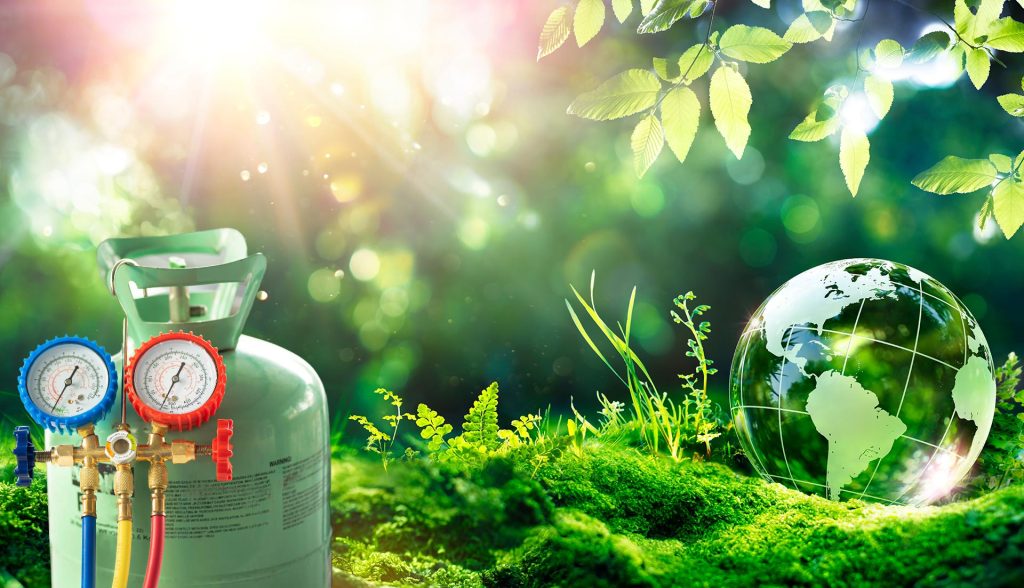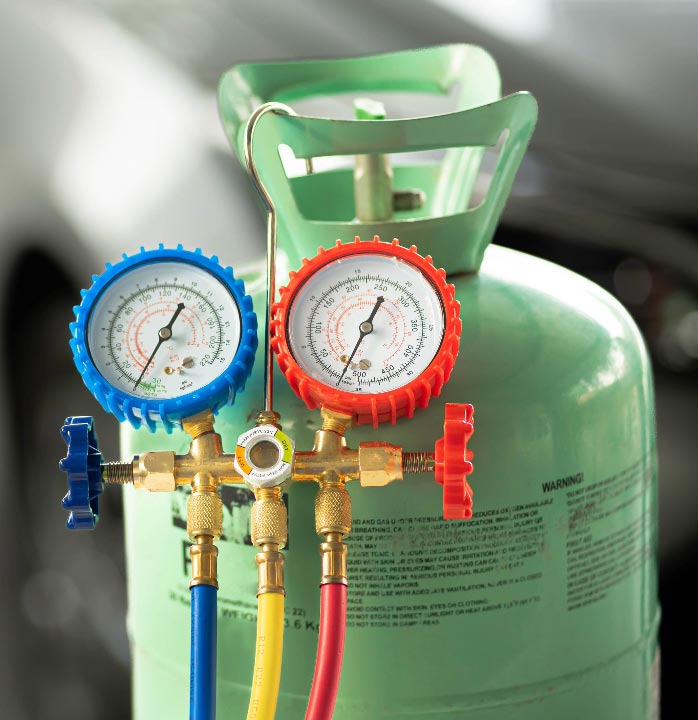The world of refrigeration and air conditioning is essential to our daily lives, from keeping food fresh to maintaining comfortable indoor environments. At the heart of these systems are refrigerants, and among them, hydrochlorofluorocarbons (HCFCs) which have play a significant role. Awareness of HCFCs in refrigeration and their environmental impact is crucial to understanding why proper handling and recovery of HCFCs are vital for both ecological and economic reasons.
What are HCFCs?
HCFCs are a class of refrigerants that were developed as replacements for earlier, more damaging chemicals like chlorofluorocarbons (CFCs). While HCFCs are less harmful than CFCs, they are not without environmental concerns.
- Ozone Depletion: HCFCs contribute to the depletion of the ozone layer, though to a lesser extent than CFCs.
- Global Warming Potential (GWP): HCFCs are potent greenhouse gases, contributing to climate change when released into the atmosphere.
Examples of HCFCs include R-22 and R-123, which have been widely used in air conditioning, refrigeration, and other applications.
The Shift Away from HCFCs
To address the environmental impact of HCFCs, international agreements like the Montreal Protocol have mandated their phasedown. In many regions, HCFCs are being replaced with alternatives such as hydrofluorocarbons (HFCs), which have no ozone-depleting potential, or newer low-GWP refrigerants.
While these transitions are underway, millions of systems still rely on HCFCs, necessitating the responsible management of existing refrigerants.
The Importance of Proper Refrigerant Recovery
When refrigeration or air conditioning systems are serviced, replaced, or decommissioned, the refrigerant inside must be carefully managed. Improper handling can lead to leaks that harm the environment and violate regulations. Here’s why proper refrigerant recovery is essential:
- Protecting the Environment
- Recovering HCFCs prevents their release into the atmosphere, mitigating ozone depletion and greenhouse gas emissions.
- It aligns with global efforts to combat climate change and preserve the ozone layer.
- Compliance with Regulations
- Many countries have strict laws governing the recovery, recycling, and disposal of refrigerants. Non-compliance can result in hefty fines and legal consequences.
- Economic Benefits
- Recovered HCFCs can often be purified and reused, reducing the need for producing new refrigerants.
- Proper recovery ensures businesses avoid costs associated with fines or environmental remediation.
- Sustainability Goals
- Organizations committed to sustainability can demonstrate leadership by adhering to best practices in refrigerant recovery and disposal.
Best Practices for HCFC Recovery
To ensure effective refrigerant recovery, follow these best practices:
- Use Certified Equipment
- Employ recovery machines and tanks that are certified for the specific type of refrigerant being handled.
- Hire Trained Professionals
- Technicians should have the proper certifications and training to handle refrigerants safely and in compliance with regulations.
- Regular Maintenance
- Keep equipment well-maintained to avoid leaks and ensure efficient recovery operations.
- Track and Document
- Maintain detailed records of recovered refrigerants, including quantities, destinations, and recycling methods.
- Adopt Alternative Refrigerants
- Whenever possible, transition to environmentally friendly refrigerants and systems that reduce reliance on HCFCs.
Looking Ahead: A Greener Future
As the world moves toward greener and more sustainable refrigeration solutions, proper refrigerant recovery remains a critical step. By preventing environmental damage, complying with regulations, and embracing sustainable practices, we can mitigate the impact of HCFCs and support the transition to safer alternatives.
Whether you’re an HVAC professional, business owner, or simply someone concerned about the environment, understanding the importance of refrigerant recovery is a step toward preserving our planet for future generations.
Conclusion
The legacy of HCFCs underscores the importance of balancing technological progress with environmental stewardship. By committing to proper refrigerant recovery practices, we can protect the ozone layer, slow climate change, and create a sustainable path forward in refrigeration and air conditioning.
Join us in making a positive impact on the environment while boosting your bottom line. Contact us today to learn more about how our Refrigerant Buyback Program can benefit you!
Refrigerant Services LLC
54000 Grand River Ave
New Hudson, MI 48165
#844-PURE-CFC (787-3232)





